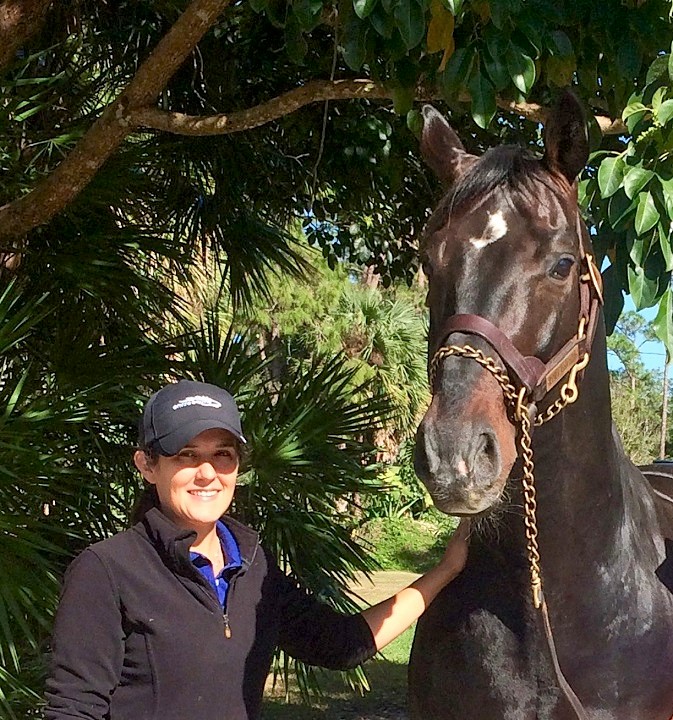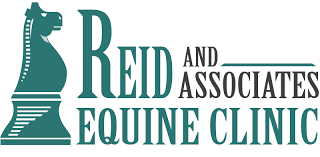
Written by Sue Weakley for Dr. Erin Newkirk, Reid and Associates Equine Clinic
The thought of worms invading their animals is unsettling to most horse owners and they are anxious to eradicate them, but the veterinarians at Reid and Associates advocate a newer way to control parasites instead of a carousel of dewormers administered every 60 days. They recommend a program of monitoring and targeting treatment to keep the pests at bay.
“It’s more of a management strategy rather than a cookbook strategy,” explained Erin Newkirk, DVM. “It’s customizable for the horse, the barn, and the herd and it’s tailored to fit the client and their horses.”
Research has shown that about 20 percent of the horses in a herd shed 80% of the parasites. In fact, most of our horses are able to control parasites at an acceptable level using their own immunity. This, along with good pasture management including pasture rotation and a decreased number of horses on the area, can keep many parasites under control.
“Every horse has a worm burden,” Dr. Newkirk said. “Some horses have a naturally good immune system that keeps that worm burden to a low level and doesn’t impact quality of life. Some horses don’t have as good of an immune system or they are young or old or they have Cushings Disease or something of that nature, and they have a much higher worm burden that impacts their health and quality of life.”
As a starting point for the protocol, the veterinarians suggest testing the horses using a fecal egg count, identifying the horses that are resistant or susceptible to worms, and treating each horse individually.
Three to four months after the horse’s last dose of a deworming product, a baseline fecal egg count (FEC) is determined. FECs are quantitative measurements to assess the parasite load in the horse. It is a measure of the number and types of eggs the horse is passing in each gram of manure. FECs are used to help identify low, moderate and high shedders. Each of these horses requires a different strategy for parasite control.
Low shedders need less deworming and monitoring, while high shedders need more frequent deworming and monitoring. If the count is 0-200 eggs per gram (EPG), then typically no medications are administered. If the EPG is higher, the proper pharmaceutical is administered and a follow-up fecal count two-weeks later will determine if the treatment was successful. If that EPG doesn’t drop low enough, that suggests product resistance and the veterinarians reconsider a different product for success.
“People who have switched to this program have been surprised how little they have to deworm,” Dr. Newkirk said. “It’s a strategy that treats the right thing with the right medication and you do it at the right time. You don’t just deworm because everybody has been doing it every 60 days for the past 40 years.”
There is one caveat that the veterinarians at Reid and Associates do follow on schedule: an ivermectin product administered twice a year to treat the worms that cannot be identified via a fecal exam. Large strongyles (primarily Strongylus vulgaris) are blood-sucking worms that can damage the cranial mesenteric artery and cause fatal colic. Historically, it is the most relevant parasite and the original drive for the rotational deworming strategy. It is controlled by deworming with ivermectin every six months.
“The most important thing here is that the drug companies are no longer coming out with new and better dewormers,” she continued. “After moxidectin, there have been no new ones on the horizon. So, during the decades where they recommended rotational dewormers, they were popping out new drugs all the time and the strategy worked. But now, we have a limited set of effective medications or dewormers to work with and we have a worm population that has the possibility to be resistant. We have to do this the right way so we decrease resistance in the horse population and act as good stewards to our animals and the environment as well.”

Reid and Associates Equine Clinic is a full-service equine hospital and referral center established in 1995 by Bryon V. Reid, VMD. The clinic, located just minutes from Wellington’s Winter Equestrian Festival show grounds in Loxahatchee, Florida, specializes in preventive equine care as well as elective and urgent medical and surgical cases..
Emergency ambulatory calls and hospital admittance are available around the clock, 365 days a year. State-of-the-art diagnostics and treatments include a variety of options including orthopedic, colic and soft tissue surgery.
The team’s first priority is always the same: the health and well-being of your horse. To learn more about Reid and Associates Equine Clinic, click here to visit their website.






 Latest Horses for Sale and Lease
Latest Horses for Sale and Lease
